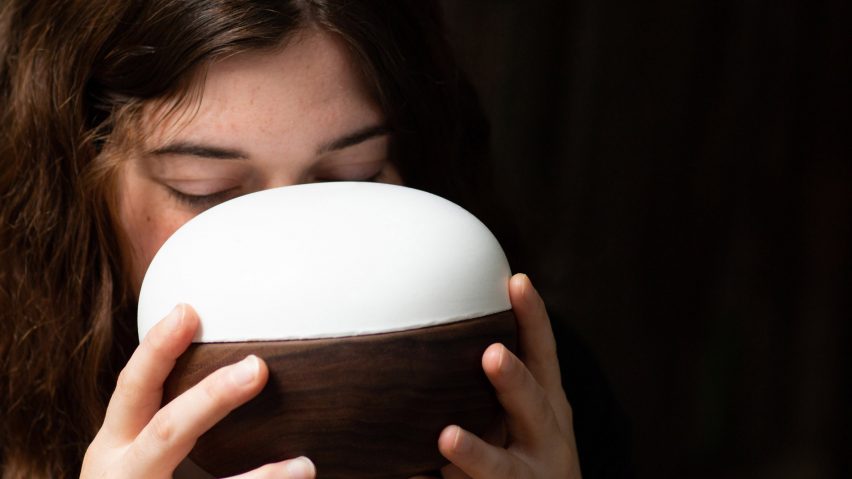
Royal College of Art graduate creates tableware to encourage "edible pleasure"
Royal College of Art graduate Will Fazackerley has created a range of experimental tableware designed to "spark delight and satisfy your search for edible pleasure".
Called Nourish, the project features two products: a drinking vessel made for slurping soups and a pair of objects made for licking food.
The Design Innovation Engineering graduate wanted to design an alternative to traditional tableware – which he sees as restrictive – to promote playful ways to taste and enjoy food.
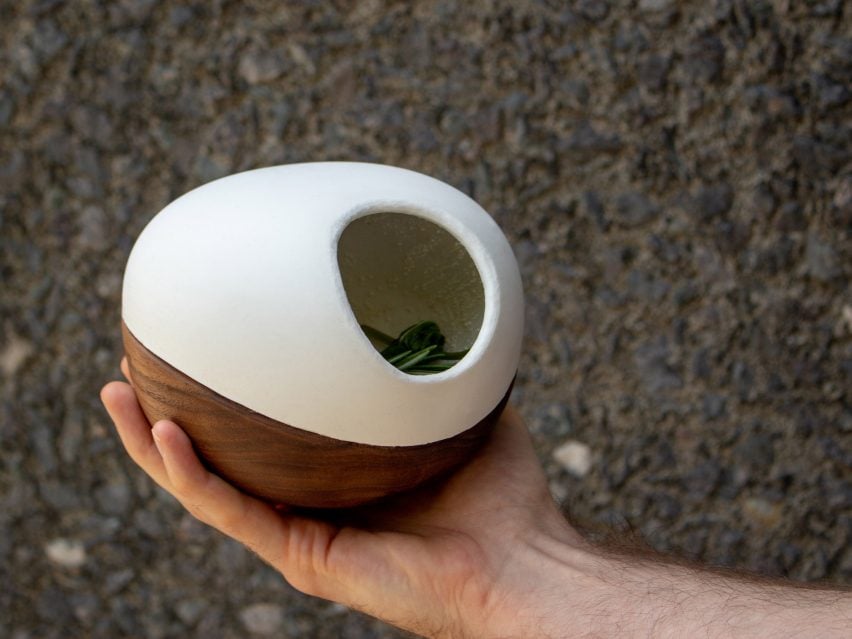
"Nourish is a pleasure-driven approach to eating interactions and the design of tableware. A series of experimental objects, designed for use at home, to encourage you to eat in ways that spark delight and satisfy your search for edible pleasure," he said.
"We are driven to eat by two motivators: to maintain our energy balance and the anticipation of pleasure," he continued.
"Nourish shifts this pleasure-giving from the food and onto the interactions and tools we use to eat, reducing our reliance on the food itself for comfort," he explained.
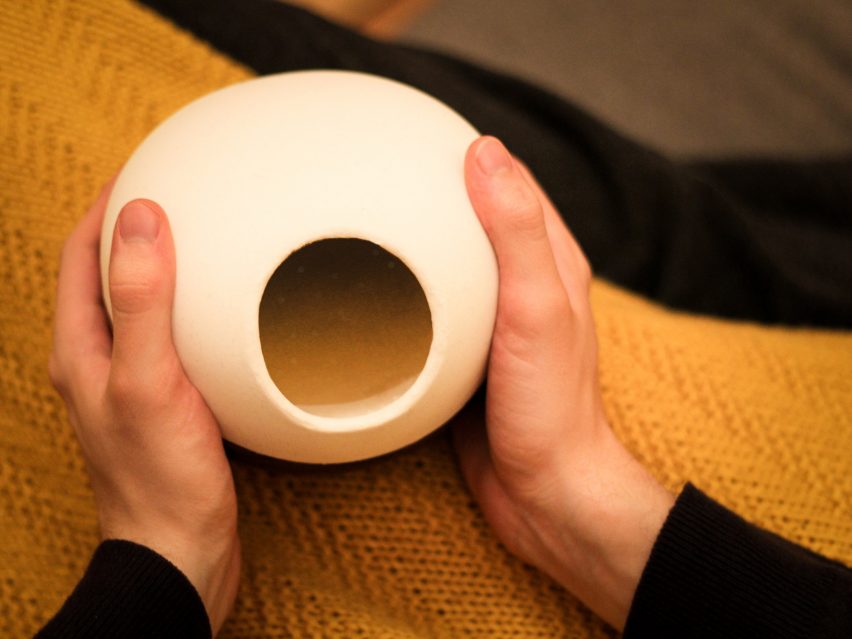
The first item in the collection is the Slurp drinking vessel, which features a large rounded body with a small opening for liquid to be consumed.
Fazackerley based the design on research by Professor Charles Spence at the University of Oxford, which found cross-sensory experiences are most satisfying.
The product is intentionally heavy and has a has a rounded structure that does not sit flat on a table, which Fazackerley believes further encourages individuals to pick it up.
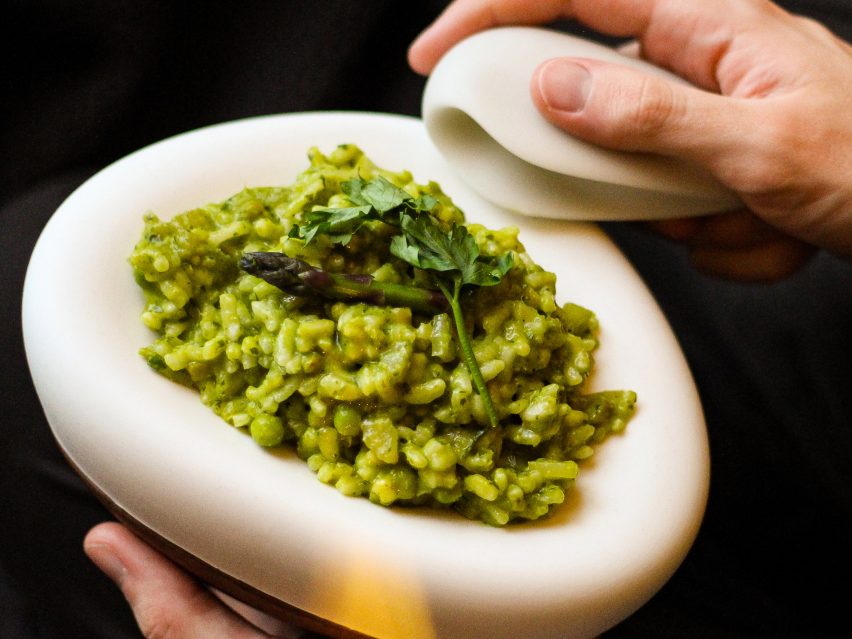
"Slurp is a drinking vessel perfect for soups, stews, ramen and teas with a focus on engaging all the senses and the giving of full and focused attention to the act of eating," he explained.
"The large chamber with a small opening is inspired by whisky glasses and is designed to amplify the aromas within."
"The gentle rise of steam invites you to drink, evoking feelings of warmth and cosiness, whilst the concentrated scent gives you an instant hit of satisfaction before the food touches your lips," he continued.
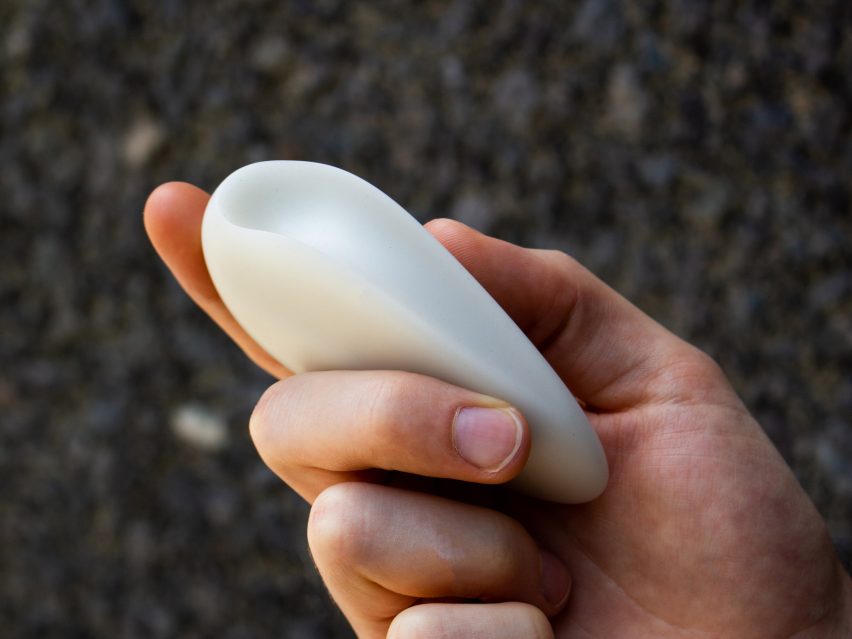
Another piece in the collection is a pair of objects named Lick, which are made for foods such as mousses, ganache, risotto and ice cream. It features stone utensils with gently curved surfaces, inspired by the act of licking the plate at the end of a meal or the spoon from a mixing bowl.
"Lick is a pair of objects that work together to pursue absolute pleasure," said Fazackerley. "Licking, whether it is your plate at the end of a meal or the spoon from a mixing bowl, is an inherently pleasurable act yet one that does not conform to western etiquette."
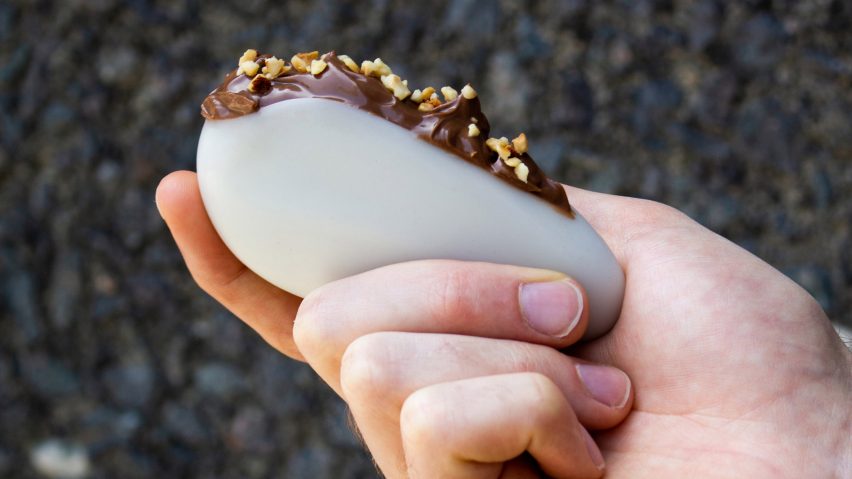
"Lick is designed to actively encourage this behaviour in a particularly sensual manner – this is echoed in the organic, human-inspired form of the stone. It's cheekily sexual by design, and suggests that pleasure must take a greater role in our approach to eating," he explained.
"The intention is to break down the barriers of social expectation and give us permission to engage with our food in as pleasurable, delightful, and guilt-free way as possible."
Nourish was on show at the Royal College of Art as part of their annual degree show. Other graduate projects include a set of tools that inform animals of potential human threats and a ceramic tea set made using fabric moulds.